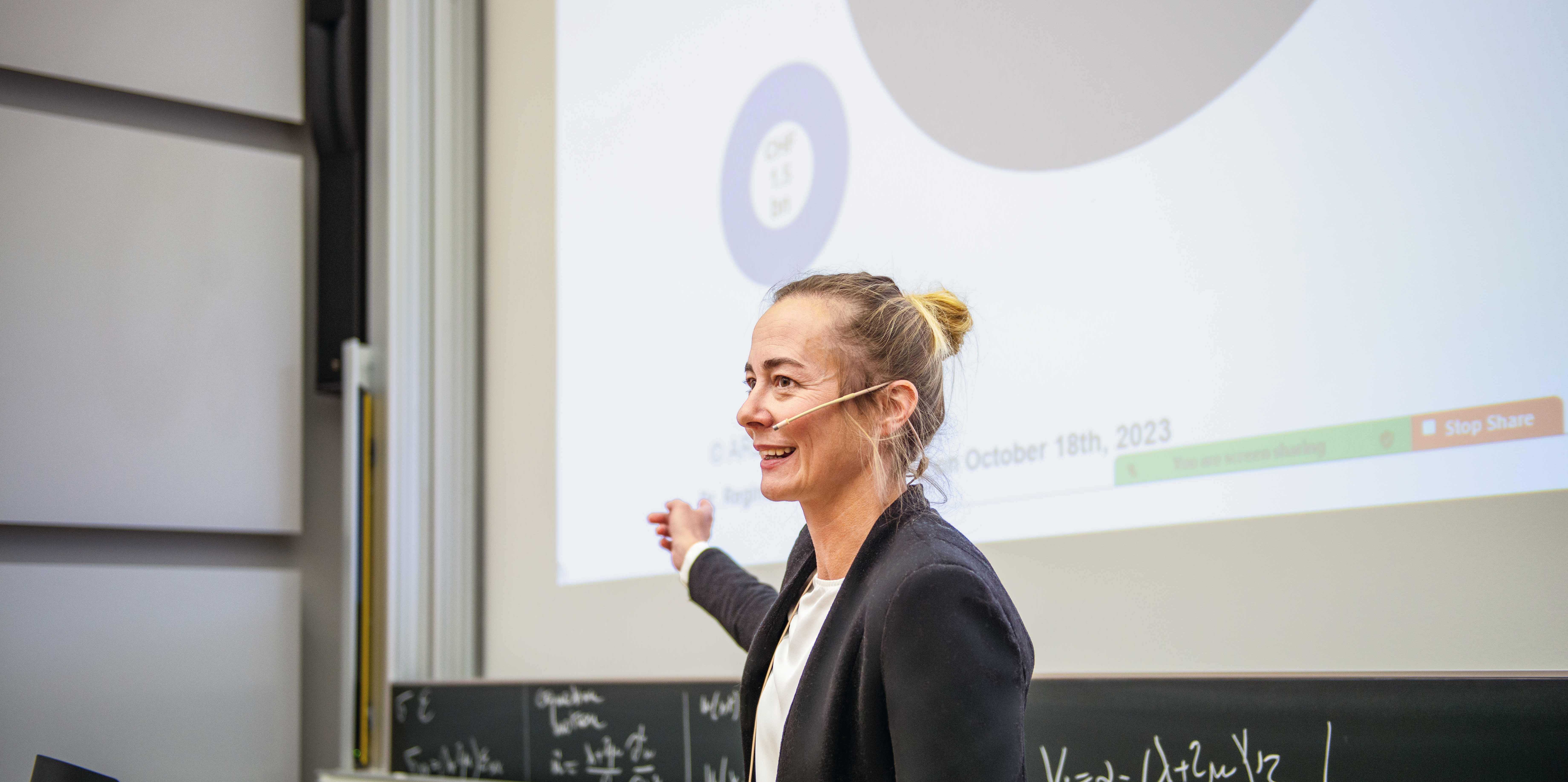Battery or hydrogen power? Which one will drive the trucks and buses of the future? This question is more than just academic for Regina Witter. As deputy head of the Agglomeration Transport programme at the Swiss Federal Office for Spatial Development (ARE), she helps decide which projects benefit from CHF 1.6 billion of federal funds to promote sustainable spatial and transport planning. “We recently discussed an idea put forward by an agglomeration to convert public bus transport to hydrogen power,” Witter recalls. But does this approach really make technological sense? This was just one of many questions on Witter’s mind when she visited ETH Zurich last autumn.
ETH professors Tobias Schmidt and Russell McKenna are currently investigating the pros and cons of various energy systems. Both agree that battery power, rather than hydrogen, offers the best option for passenger transport. “If you consider the total vehicle costs over its full service life, batteries are significantly cheaper and more efficient,” says Schmidt, who has published a major study on the subject. Regina Witter held one-on-one meetings with both Schmidt and McKenna, delving deep into this topic over the course of several hours. “I was struck by how vehemently both of them argued against the use of hydrogen power for passenger transport,” she explains. “That level of conviction is not something we’ve heard in our department before, and it throws into question whether hydrogen is the right choice for public transport.”
Helping to promote closer consultation between the Federal Administration and the academic world is a new pilot project at ETH Zurich: the ETH Policy Fellowship. Last year, from September to November, three officials from the Swiss Federal Administration spent ten days at ETH. One of them was Regina Witter, who has a doctorate in spatial and transport planning. She took part in workshops, gave a lecture, bounced ideas around with students and met up with a total of 13 experts in the fields of spatial planning, energy and transportation. She describes it as a “rewarding experience that I can heartily recommend to middle-ranking officials at the Federal Administration”.
Two-way traffic
In early 2020, as the SARS-CoV-2 coronavirus began to take hold in Switzerland, the federal government and administration quickly turned to the scientific community for advice on how to handle this complex new situation. Initial efforts at cooperation were bumpy, however, with little mutual understanding of the other’s needs or ways of working. A key lesson of the Covid-19 pandemic has been that communication between government and the scientific community needs to be ongoing rather than merely an ad hoc measure in times of crisis.
It is this problem that the ETH Policy Fellowship is designed to address. “Our aim is to create a network between Federal Administration officials and ETH researchers that is based on mutual understanding and trust,” explains Benedikt Knüsel, ETH liaison officer for the Federal Administration.














